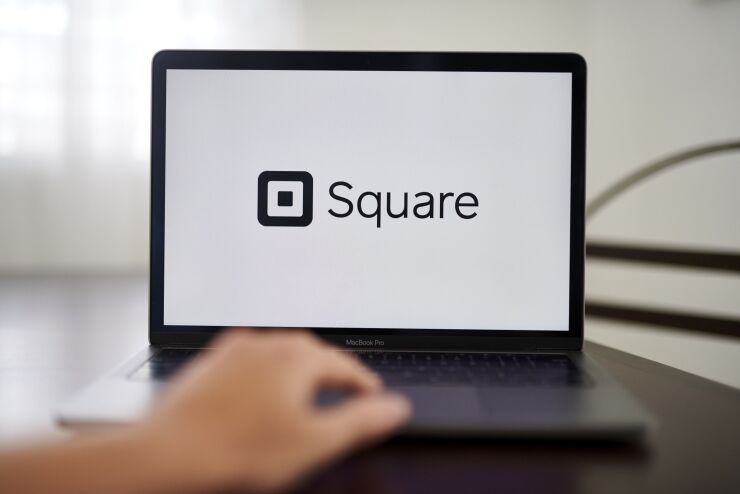Only a year passed since Square got the green light from regulators to operate the bank it launched Monday, but in that time bitcoin has become a critical driver of its revenue.
In the fourth quarter, bitcoin trading contributed more than half of the company's overall revenue — and that will make a big difference as the new Salt Lake City-based
Square is best known for providing mobile point of sale and other payment services to merchants; bitcoin trading came out of the company's experimental approach to its Cash App, its only consumer-facing product. This model allowed Square to profit even as the pandemic weighed on the merchants that rely on its service.
By adding its own banking subsidiary, Square will be able to react even faster to changes in the market.
What makes the setup so flexible is that "Square can think about term loans and savings products without having to go through partnerships," said Alenka Grealish, a senior analyst at Celent.

Square now operates a "closed loop" model in which it is building its own infrastructure, Grealish said. That's different from other payment-focused fintechs that work with third parties to streamline existing rails. Square will still sell loans to third-party investors.
The bank will allow Square to bring banking to underserved markets and won't compete directly with traditional banks.
“Bringing banking capability in-house enables us to operate more nimbly, which will serve Square and our customers as we continue the work to create financial tools that serve the underserved,” Amrita Ahuja, Square's chief financial officer and the executive chairwoman of Square Financial Services, said in a
This brings the bank more in line with the mission of the Cash App; in earnings calls, Square CEO Jack Dorsey has said his company plans to use its increased cash from bitcoin trades to reinvest in Cash's utility as a financial services platform.
Square reported triple-digit revenue growth in the
"Square’s [industrial bank license] is a step enabling greater control of its delivery stack and a greater share of its products’ economics," said Eric Grover, a principal at Intrepid Ventures, adding Square can directly issue credit cards to Square Cash users and merchants.
Square's bank also enhances its abilities in merchant acquiring, placing it in competition with Adyen, Elavon and Chase's merchant services, all of which control merchant acquiring and payment processing. Square additionally competes with payment processors and bank technology companies that have merged in recent years to build scale; and merchant-focused technology companies like Stripe and digital payment companies like PayPal. As a direct lender, Square would have an advantage over PayPal and Stripe, while it could retain some of the speed to market advantages it has over traditional payment processors that have larger businesses.
"Merchant acquiring is a relatively low-risk activity compared with credit," Grover said. "I suspect everything else being equal, Square would like greater control as well."
Square's ability to tie bitcoin directly to banking will likely be indirect. The
"What Square won’t be able to do is directly issue debit cards attached to cryptocurrency or other deposits," Grover said.





